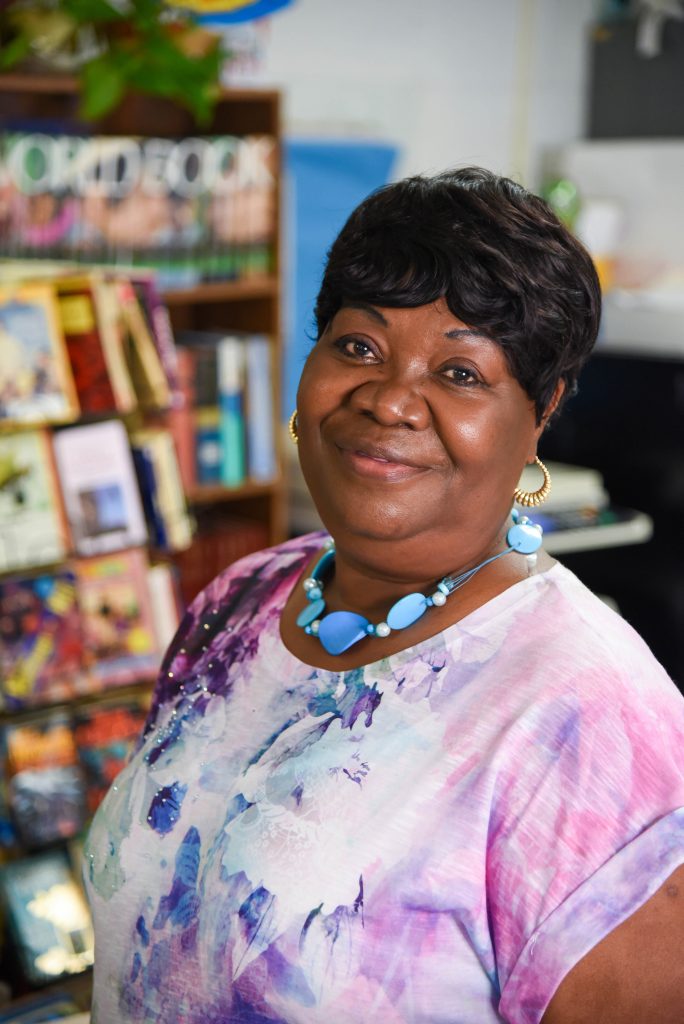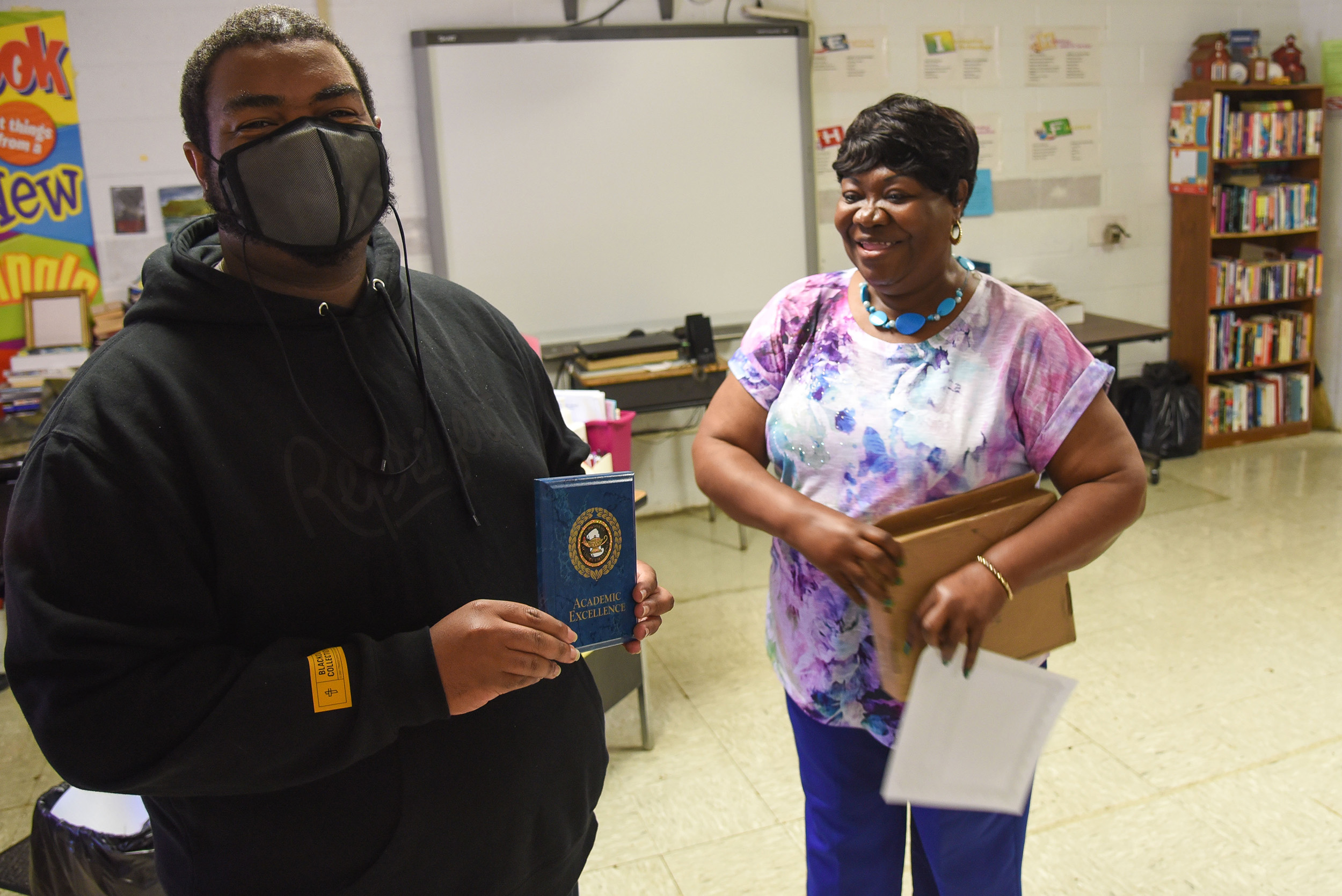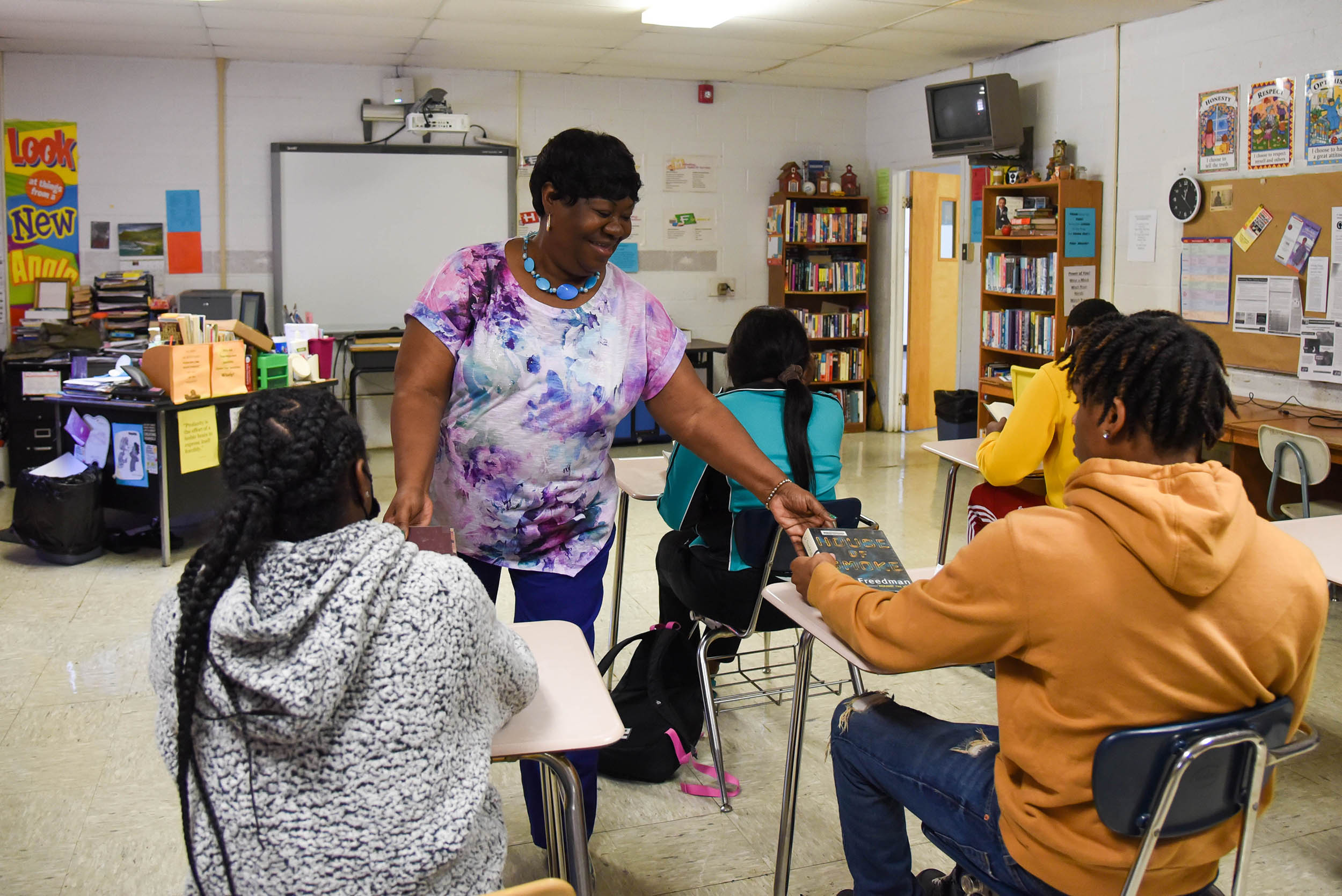When Evelyn Wilson-Thomas took the helm of the Strong Classroom Teachers Association, she was one of the only education support professionals in the local. Thanks to the name, many didn’t even know they could be.

“The first thing they’d say was ‘That’s teachers,’” Thomas said. “We’re all educators and if we don’t tell other people we are educators too, we kind of get looked over.”
Thomas knew better, as an Education Support Professional and AEA board member, she had learned about the wall-to-wall services available to all school employees.
“At my school we are all educators, and should all be equal,” she said. “I know we don’t all have a license, but it takes all of us to run this school. That’s what we do our best to do. We got it changed to Strong-Huttig Education Association, and since I was not a licensed teacher here, that includes me.”
As the small school’s Academic and Behavior Interventionist, she usually has about 10 students from 7-12th grade on any given day. While assignments – and the reason for their arrival – may vary, Wilson-Thomas keeps them on track while they also work on underlying behavior issues.
“My dad used to have a saying, ‘You can’t teach a child anything until you have his attention,’” Wilson-Thomas said. “When they come to me they are usually angry, upset, it’s everybody else’s fault. We have to talk this down, this anger, this frustration, before we can get down to what we need to do.”
While the students aren’t in their normal classes, Thomas keeps each day as close to a regular schedule as possible.
“If you have an hour in class, you have an hour to get this work done and then you move to your next subject,” she said. “They may not always have instructional face to face time, but they will be so close to what’s going on in the classroom that they won’t fall behind.”
She also gives students the opportunity to work their way out, an experience that repeat visitors do not forget.
“The new students are who I really have to work with because the older students already know, ‘Ms. Thomas is not going to allow this,’” she said. “’Ms. Thomas is going to give us extra days until we get it right.’ The longer you continue to be disruptive, the longer you will stay with me. Hopefully, we’re not adding but subtracting.”
Thomas is a Strong High School graduate herself, and her connection to the community runs deep.
“I’m seasoned – I know a lot of the students, I know the parents, I kind of feel motherly because I’m from here,” she said. “Some of the kids that have gone through, I now have their kids and I say, ‘You know you’re not supposed to act that way. I know your parents. Do I need to talk to them? I know they can’t see what you’re doing but I’ll tattle in a minute!’”
The deep connections also bring a fair amount of concern. Under Act 60 of 2003, school districts with fewer than 350 students are required to consolidate, and Strong-Huttig is consistently well below that number. The law already forced the consolidation of the Strong and Huttig school districts, but with current enrollment hovering around 300, the district must apply for a waiver each year while providing financial, academic and facilities documentation.
“I’m concerned, because it is a small school, and I know if we lose our school, it would be devastating to the community,” she said. “Nobody will come to a small town that doesn’t have a place to educate your kids. We’ve picked up a few businesses, but if there’s no place to educate kids, why would you even want to bring a business here?”
While the football and other sports teams generate community pride, Thomas says the schools honor roll students are just as important, and so SHEA created and hosts an academic banquet to celebrate the top learners.



“We make a big whoop-di-do because our deal… our honor students are the ones keeping our doors open,” she said. “You don’t have to have basketball, music art or whatever, but you’ve got to have education.”
Thomas attends every AEA event she can, from professional development opportunities to board meetings and legislative events. Coming from the Southeast corner of the state isn’t easy, and she often drives the small town highways alone, but she makes sure to bring everything she learns back home.
“AEA, NEA is a wonderful organization to be in,” she said. “We have a lot of member benefits, but we have also a lot of things that keep us up to date on education.”
In addition to the information shared by AEA staff, she learns from other educators that she meets from across the state.
“I’ve learned about things at other schools that I’ve tried to bring to my school,” she said. “Bringing these ideas to my school helps our school to grow. If you don’t get out and see what somebody else is doing you just keep doing the same thing over and over without any change.”
While she continues to work on growth at the association and district level, she gets to enjoy positive change in her students as they realize she is ready to embrace them.
“When you can see a turnaround, and they can come back to you and say, thank you for caring it warms the heart,” she said. “A lot of times they’ll come back and say, ‘We had a lot of problems at home. Thank you for being patient with me while I was being hardheaded.’ It wasn’t about me, but I was the sounding board that they used to vent their anger.”





